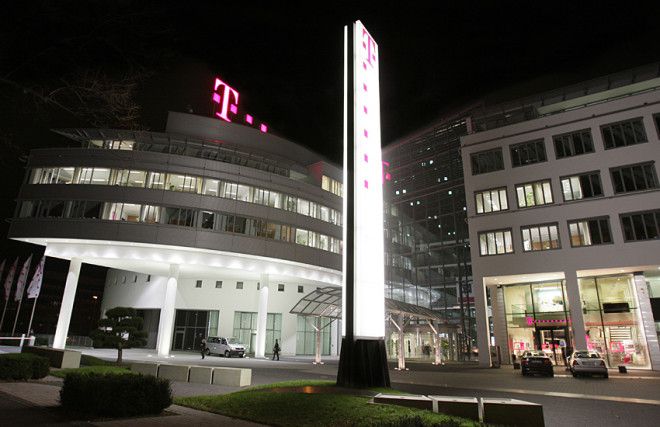You probably need no reminding of that time in 2011 when Deutsche Telekom tried to sell T-Mobile US to AT&T, or that time last year when Sprint/SoftBank came close to making an official merger bid. But since the beginning of the Uncarrier initiative, T-Mobile has gone from strength to strength. It has increased its subscriber base so much that it’s virtually guaranteed to overtake Sprint as the #3 carrier this quarter, and – over the past few quarters – revenue growth has returned.
And now – it seems – Deutsche Telekom is starting to reap the rewards of its 67% majority stakeholder position in T-Mobile US. During the first quarter of the year, DT’s earnings increased from €4.1B to €4.6B, and this success comes down to two key areas according to the Financial Times.
First, is the weakness of the Euro. Second is T-Mobile US. Our favorite carrier gained an impressive 1.8 million customers in Q1, bringing it up to 56.8 million customers in total. More importantly, from a financial perspective, T-Mobile brought in 41% of the company’s net revenue during the first quarter of 2015. Incidentally, the biggest contribution by any of DT’s companies. Saying that, its German business still made the most profit for Deutsche Telekom.
In the entire report by FT – oddly – the portion that brings the most comfort is the fact that DT now plans to return more money to shareholders. It is more confident in the European telecoms scene after going through a somewhat turbulent and super-competitive spell. At one point it seemed DT would sell of its U.S. arm in order to raise capital to better invest in the European markets. Now, that’s not as huge a motivation as it may once have been.
Timotheus Höttges, chief executive, said: “It has been some time since we have seen positive indications for revenue and earnings in our industry. Our clear strategy with strong investment is paying off.”
It’s further indication also that Deutsche Telekom is also somewhat less inclined to sell off T-Mobile to just anyone. Although it clearly attempted to sell to SoftBank, following a successful period last year, it refused to even entertain the idea of selling to the French carrier, Iliad. It also means it can be picky about strategic partnerships with other businesses, or who it may – or may not – sell its majority share to. Rumors have been rumbling for some time that T-Mobile and Dish might work well as one company, although that’s been almost entirely speculative. So far, there’s been very little substance to that story.
With its momentum in the States, T-Mobile is in a very strong position right now. It’s adding more subscribers than anyone else, and is keeping hold of them better than ever before. Key now will be investment in additional spectrum. Thinking ahead to the vital incentive auction next year, it’ll be interesting to see how exactly T-Mo raises enough cash (or debt) to fund its activities in trying to secure 600MHz spectrum. Will Deutsche Telekom realize the importance of the auction and pony up its own cash? Will T-Mobile start making enough profit to fund the auction independently?
Source: Financial Times

